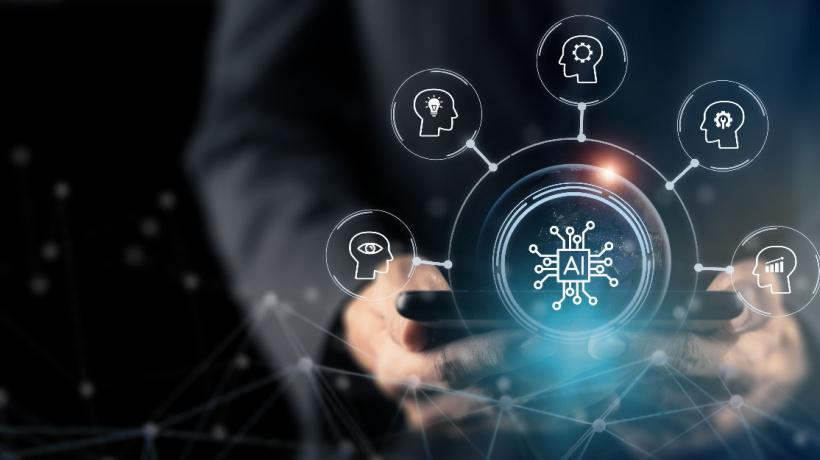Leveraging Artificial Intelligence For Upskilling And Retraining
The world is rapidly moving into the digital age, and the issue of staff development and retraining is more acute than ever. Companies must be able to adapt to new technologies and ways of doing business to remain competitive. Among other things, this means that companies need to invest in the development of their employees. Yet, which field is the best choice for investment and focused improvement? Artificial Intelligence chatbots are a great tool that can help support continuous Learning and Development in the workplace.
Workplace Development In The Digital Age
An MIT study showed that the productivity of workers who used ChatGPT increased by 37%. Thus, while AI can help complete work, automation should be seen as something other than a human replacement.
A Few Words About ChatGPT
ChatGPT is part of a family of Artificial Intelligence models developed by OpenAI. These neural networks generate text based on input data and context, allowing users to conduct dialogue with them. ChatGPT can improve performance, from automating time-consuming tasks like web browsing and extracting data to generating creative ideas and alternative approaches.
By automating lower-level tasks, employees can focus on more critical tasks that require intuition and human insight. This increases work efficiency, allowing you to develop new skills and abilities. Thus, by harnessing the power of Artificial Intelligence, business leaders can invest in their workforce by providing upskilling and retraining opportunities to:
- Increase retention,
- Increase satisfaction,
- Develop talents.
In addition to creating "universal" employees who can adapt and quickly switch between different roles and tasks, prioritizing learning will help companies retain and attract the best talent. According to a Conference Board survey [1], almost 63% of American employees are happy in the workplace, thanks partly to education and training programs. A Gallup poll found [2] that nearly half (50%) of American workers would change jobs if a new company offered upskilling opportunities.
Temporary learning is good, but it's a road to nowhere. Instead, it is essential to cultivate a culture of continuous learning so that companies can grow and thrive in the age of AI. By training employees, companies:
- Promote innovation.
- Increase employee engagement.
- Create a flexible workforce capable of accepting change.
- Help to expand individual abilities.
- Reveal untapped talents.
The needs of two different employees are different. However, regardless of their positions, people increasingly turn to training that helps develop skills such as leadership, cooperation, adaptability, empathy, and project and team management. Artificial Intelligence can perform various tasks but never replace empathetic, communicative leaders.
How Can Artificial Intelligence Help?
Many companies are already using AI in one form or another. For example, some media use it to compose titles and transcribe audio recordings of interviews. In addition, you can use Artificial Intelligence chatbots by connecting them to a course platform to support staff development and retraining by acting as virtual assistants. Such chatbots can generate informative responses and suggestions to help your students. They can help with research and information gathering by offering a variety of sources and citations.
The Future Of Upskilling And Retraining
The need for upskilling and retraining is constant and essential as technology advances rapidly. Companies must be prepared to invest in the development of their employees continually. With Artificial Intelligence intervening in various work roles, employees must stay relevant like never before. Many can innovate a field of employment that works in tandem with robots and automated systems. Or, start developing additional skills that may be needed in the digital age. Since AI can take over the part of the work that requires "hard" skills, developing "soft" skills can become very important. Soft skills include:
- Empathy
- Emotional intellect
- Sociability
- Leadership
- Creativity
- Mental flexibility
- Analytical thinking
- Personal efficiency
- Teamwork
Thus, as AI becomes more adept at technical tasks, there will be an increasing demand for workers with strong interpersonal skills.
Wrapping Up
Upskilling and reskilling are essential to keep employees and companies competitive in a rapidly changing digital world. AI-powered chatbots offer a solution to support continuous learning, growth, and development in the workplace. By using AI to gather knowledge and create personalized interactions with chatbots, companies can create effective upskilling and retraining programs that keep employees one step ahead. All of this will help create a dynamic learning ecosystem that equips employees with the skills they need, enabling continuous growth and adaptability and fostering a culture of ethical innovation and company values.
References
[1] Job Satisfaction 2023: US Worker Satisfaction Continues to Increase
[2] The American Upskilling Study: Empowering Workers for the Jobs of Tomorrow









